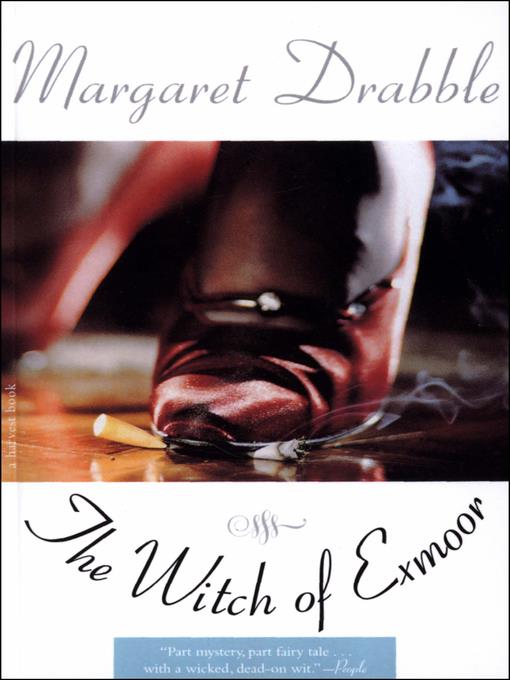
The Witch of Exmoor
- اطلاعات
- نقد و بررسی
- دیدگاه کاربران
نقد و بررسی

Starred review from September 1, 1997
Frieda Haxby Palmer, writer, intellectual, and the witch of the title of this bristling social satire, is a splendid, classic British eccentric, a woman who is capable of serving her family a dish of proletarian "Bumperburgers," which contains no meat, just "gristle, fat, chicken scraps, and water from cow's heads." She does this to prove a favorite point to her smug, opinionated children (surgeon, lawyer, arts administrator), who are blundering through lives as apparently conventional as hers has been unusual. The point is that their slick, prosperous world is in fact moribund, so corrupt and monstrous that it is rotting on its feet. Not content with dinner-table dissent, Frieda sues Her Majesty's Government over her tax returns, shuns her children's company, abandons her expensive car in a traffic jam and moves into an isolated, near-derelict Victorian Gothic hotel on England's western coast. Drabble depicts the objects of Frieda's scorn in terms that are at once ingenious and disturbing. Animals are filthy, slaughter-house fodder, food has become diseased, living environments are toxic. Characters are haunted by their past, confused by their origins; Frieda's favorite grandson is deeply anguished over his mixed Indian-Guyanese heritage, her eldest son's child is a junkie. But such grimness never overwhelms Drabble's sly humor and urbane wit or her mischievous eye for revealing detail. When Frieda disappears without warning, the drama turns to mystery, and her children, as concerned about her will as about her fate, are left to unravel the puzzle of their mother's existence and their own. Swimming in the murk of post-Thatcher Britain and taking a stern but knowing view of the English bourgeoisie, this is postmodern family drama at its best.

May 1, 1997
The famous but eccentric Frieda baffles her children by going off to live in an old hotel in Exmoor. Drabble's first novel in five years.

Starred review from May 15, 1997
It's been five years since Drabble's last novel, "The Gates of Ivory," and she is at her sorceress' best spinning this wickedly gothic tale of one family's folly and tragedy. The witch of Exmoor is Frieda Haxby Palmer, a writer, "social analyst, prophet, sage and sybil," reluctant matriarch, and determined lone wolf. Bored with her three self-important and ambitious children and with all but one of her five grandchildren, and irritated by the viperish reviews of her last book, a historical novel about Queen Christina, she sold the family estate and bought a great, rotting mansion perched precariously above the sea. Here Frieda resides in eccentric solitude, working fitfully on her memoirs and enjoying her scheming family's increasing discomfort and concern over her sanity and her last will and testament. Drabble's finely etched portraits of Frieda's cold-blooded son Daniel, well-armored daughters Gogo and Rosemary, and their intriguingly conflicted spouses are priceless, bright mirrors reflecting the perversity of our times and our minds. Wielding an imperially impertinent narrative style, Drabble slyly contrasts the fairy tale^-like roles she has teasingly fashioned for her characters with acute social commentary, illuminating, in the process, all that has been lost in this age of toxicity and consumerism and all that has always been the scourge of our bloody species: selfishness and cruelty, greed and shortsightedness. Witty, original, and caustic, Drabble dazzles. ((Reviewed May 15, 1997)) (Reprinted with permission of Booklist, copyright 1997, American Library Association.)




دیدگاه کاربران